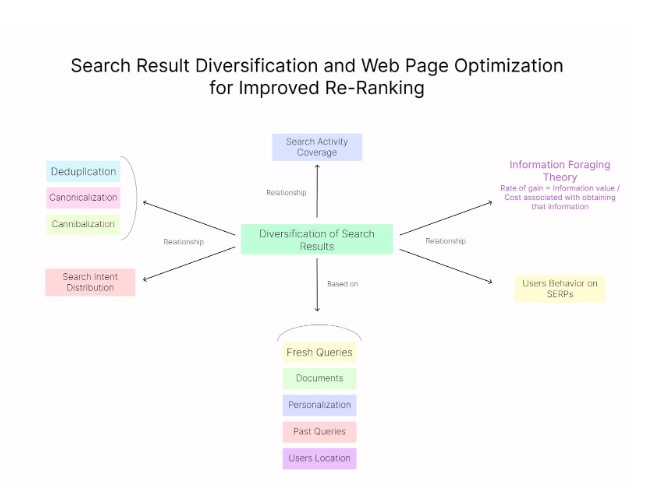🔍 What is Search Result Diversification

Users don’t always have the same intent, even if they input the same query into a search engine.
Though the query might be identical, their intent, search behavior, and context can vary significantly.
➡️ For search engines, fulfilling the needs of every searcher efficiently is not a simple task.
📊 How Search Engines Diversify Search Results:
To meet diverse user needs, search engines diversify results based on:
- 🍏 Fresh Queries
- 🍏 Indexed Documents
- 🍏 Personalization
- 🍏 Past Queries of Users
- 🍏 User Location
🎯 Why Search Results Diversification Matters:
- 🌴 Helps users find highly relevant information quickly.
This aligns with the Information Foraging Theory:
Rate of Gain = Information Value / Cost Associated with Obtaining that Information - 🌴 Addresses varied searcher intents.
Example: A search for "apple" could mean either the fruit or the tech company. - 🌴 Caters to different user behaviors on SERPs.
User behavior can differ based on:- 📍 Location
- 🕘 Past Searches
- 📚 Context
- 💻 Activity on the search engine
🕸️ Diversification at the Website Level:
Even websites can experience diversification challenges.
📌 Multiple pages ranking for the same keyword can lead to keyword cannibalization.
To manage this, search engines may:
- ✅ Prioritize one page over another
- ✅ Cluster similar pages under a different SERP design, such as "site-links"
💡 The Takeaway:
Search engines diversify search results to accommodate users' distributed intent and different behaviors.
From an SEO perspective, your goal should be to:
- 👉 Create a universal webpage for every content format
- 👉 Cover every contextual layer of the user's search journey
